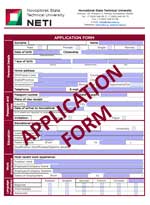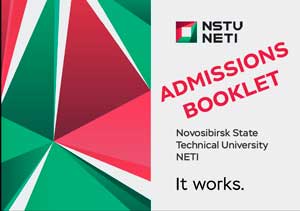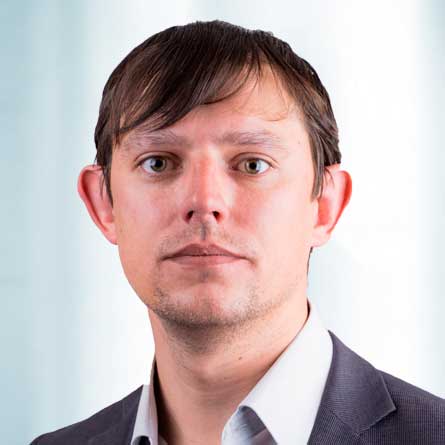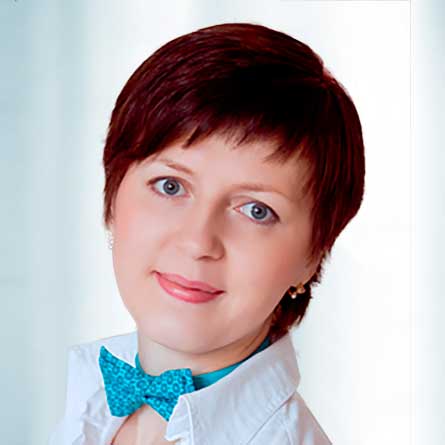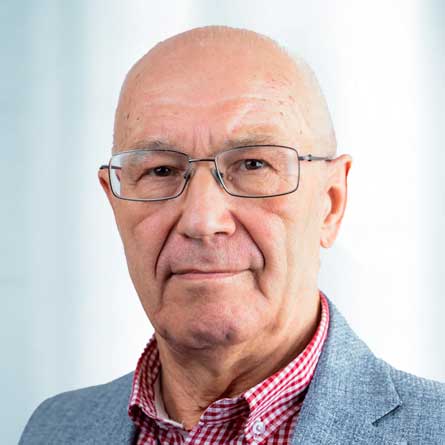Tuition fee information for all majors
Mechatronics and Automation
Duration: 2 years
Start: September 1
Admission: open
Language : English
The Master's program "Mechatronics and Automation" is aimed at in-depth training of specialists in the field of automated electric drive, automatic control systems, electromechanics, mechatronics and power electronics.
During the first year of training, you will broaden your knowledge of the current issues of electric drive control systems and automation of industrial mechanisms. You will be immediately attached to the research supervisor and begin to develop the structure of your master's thesis.
The second year of study is devoted to the study of special disciplines (core and elective within the training program), various types of practical training, as well as the preparation of a master's thesis under the guidance of your research supervisor in one of the research groups:
- electric drive control algorithms
- energy optimization of the electric drives operating modes
- intelligent automated test benches for electromechanical devices testing
- autonomous power plants
- electric energy storage systems
- You will receive profound theoretical and practical knowledge in the industry, as well as gain research experience in the chosen field.
- You will be able to participate in interdisciplinary research and technical work.
- Bachelor's degree (electric drive, electromechanics, power electronics, power engineering).
- Minimum level of English proficiency – B2
| Course: Computer, Networks and Information Technologies | |
| Professor | Malozyomov B. V. |
| Recommended semester | 2 |
| Form of Teaching | Lectures / practical work / independent work |
| ECTS | 3 |
| Examination requirements | Exam |
| Course: Automatic Control of Mechatronic Systems | |
| Professor | Candidate of Sciences (Engineering), Head of the Department of Electric Drive and Automation of Industrial Installations, NSTU Kotin D. A. |
| Recommended semester | 1 |
| Requirements | Basic course of the automatic control systems for electric drives. The operation principles of electric machines with various current types. The method for cascade control systems |
| Form of Teaching | Lectures / practical work / independent work |
| ECTS | 5 |
| Examination requirements | Exam |
| Learning Outcomes, Qualification and Competence Aims | Automatic Control of Mechatronic Systems is a one-semester course aimed at studying modern algorithms for controlling general-purpose electric drives and mechatronic modules. The course covers the structures and mathematical models of control algorithms with their effectiveness studied in laboratory settings. |
| Course: Automation of Electrical and Technological Complexes | |
| Professor | Candidate of Sciences (Engineering), Associate Professor, Department of Enterprises Power Supply Systems, NSTU Myatezh T. V., Candidate of Sciences (Engineering), Associate Professor of the Department of Electric Drive and Automation of Industrial Installations, NSTU Kaveshnikov V. M. |
| Recommended semester | 2 |
| Form of Teaching | Lectures / practical work / independent work |
| ECTS | 6 |
| Examination requirements | Exam |
| Course: Automation of Electrical and Technological Complexes | |
| Professor | Candidate of Sciences (Engineering), Associate Professor, Department of Enterprises Power Supply Systems, NSTU Myatezh T. V., Candidate of Sciences (Engineering), Associate Professor of the Department of Electric Drive and Automation of Industrial Installations, NSTU Kaveshnikov V. M. |
| Recommended semester | 2 |
| Requirements | Knowledge of the electrical engineering and electrodynamics theoretical foundations. |
| Form of Teaching | Lectures / practical work / independent work |
| ECTS | 6 |
| Examination requirements | Exam |
| Learning Outcomes, Qualification and Competence Aims | Special energy supply issues is a one-semester course that provides knowledge and practical skills in designing and optimizing electricity and heat supply systems for industrial buildings and residential premises, taking into account the system of electricity quality indicators, skills in analyzing the impact of various electricity parameters on the quality of electricity supply to consumers and minimizing the negative effects of electricity parameters deviations on the quality of electricity supply. |
| Course: Special Issues on Automatic Control Theory | |
| Professor | Candidate of Sciences (Engineering), Associate Professor of the Department of Electric Drive and Automation of Industrial Installations, NSTU Kucher E. S. |
| Recommended semester | 2 |
| Requirements | Basic course of the Theory of automatic control. Typical dynamic links, methods of linear and nonlinear automatic control systems analysis. |
| Form of Teaching | Lectures / practical work / independent work |
| ECTS | 3 |
| Examination requirements | Exam |
| Learning Outcomes, Qualification and Competence Aims | Special Issues on Automatic Control Theory is a one-semester course with a practical focus. It covers modern and widely used methods and approaches to automatic control of technical systems. |
| Course: Mechatronic Devices and Systems | |
| Professor | Candidate of Sciences (Engineering), Associate Professor of the Department of Electric Drive and Automation of Industrial Installations, NSTU Bochenkov B. M. |
| Recommended semester | 1 |
| Requirements | Ability to analyze serial mechatronic devices and design new ones |
| Form of Teaching | Lectures / practical work / independent work |
| ECTS | 3 |
| Examination requirements | Test |
| Learning Outcomes, Qualification and Competence Aims | Mechatronic Devices and Systems is a one-semester course aimed at learning the basics of designing and analyzing mechatronic devices. The course covers basic kinematic and functional structures of mechatronic modules, and the requirements for the construction of automatic control systems. |
| № | Discipline | Semester | ECTS | Assessment |
|---|---|---|---|---|
| Required | 8 | |||
| 1 | Modern Problems of Electric Power and Electrical Engineering | 2 | 3 | Test |
| 2 | Computer, Networks and Information Technologies | 2 | 3 | Exam |
| 3 | Foreign Language | 1 2 | 4 | Exam |
| 4 | Management of Innovations | 3 | 2 | Test |
| 5 | Research and Methodology Workshop | 2 3 | 2 | Test |
| 6 | Educational Practice: Practice of Obtaining Primary Skills in Research Work | 2 | 3 | Test |
| 7 | Educational Practice: Practice of Obtaining Primary Skills while Working with Software in the Context of Professional Sphere | 1 | 3 | Test |
| 8 | Preparation for and Taking the State Examination | 4 | 6 | Test |
| Variance | 20 | |||
| 9 | Philosophy | 1 | 3 | Exam |
| 10 | History and Methodology of Research and Production (in Electric Engineering, Electromechanics and Electrical Technologies) | 1 | 2 | Test |
| 11 | Automated Electric Drive of Typical Industrial Machineries | 1 | 4 | Exam |
| 12 | Automatic Control of Mechatronic Systems | 1 | 5 | Exam |
| 13 | Automation of Electrical and Technological Complexes | 2 3 | 6 | Exam |
| 14 | Automated Electric Drive in Modern Technologies | 2 3 | 6 | Exam |
| 15 | Special Issues on Automatic Control Theory | 2 | 3 | Exam |
| 16 | Problems of Energy Saving in Electrical Engineering Complexes | 1 | 3 | Test |
| 17 | Mechatronic Devices and Systems | 1 | 3 | Test |
| 18 | Direct Digital Control Systems | 3 | 5 | Exam |
| 19 | Microprocessor-based Control Systems for Electric Drives and Technological Complexes | 3 | 5 | Exam |
| 20 | Special conversion devices | 1 | 4 | Exam |
| 21 | Special Chapters of Electric Drive Theory | 1 | 4 | Exam |
| 22 | Special Issues of Automatic Systems Design | 1 | 4 | Test |
| 23 | Intellectual Property Problems | 1 | 4 | Test |
| 24 | Industrial Practice: Project Practice | 2 | 9 | Test |
| 25 | Industrial Internship: Research | 3 | 15 | Test |
| 26 | Pre-Graduation Training: Research Activity | 4 | 25 | Test |
| 27 | Scientific Cognition Methods | 3 | 3 | Test |
| 28 | Patenting | 2 | 3 | Test |
Graduates of the educational program are in demand at enterprises and organizations that produce, operate and maintain modern automated mechatronic equipment for the needs of domestic industry; in engineering firms and design institutes specializing in the research of mechatronics devices, in the development of new technologies and new technical solutions in the field of traditional and advanced automated mechatronic complexes and systems of domestic industry. Graduates can successfully continue their postgraduate studies at the world's leading universities.
Our graduates successfully work at such Russian enterprises as ZAO "Erasib", OOO "Siberia-Mechatronics", OOO NPF "Irbis", AO "Synetik", FSUE PO "Sever", PJSC Norilsk Nickel, PJSC Gazprom, as well as the official representatives of the world's largest corporations ABB, Schneider Electric, Siemens, Danfoss, Sew-Eurodrive.

Total 120 CP
- Admission starts on June 20
- Admission stops on July 10
- The documents are sent to the university in electronic form through the Enrolee NSTU Personal Account. When submitting an application for admission in electronic form, the documents attached to it are submitted (sent) to the NSTU admission committee in the form of their electronic images (paper documents converted into electronic form by scanning or photographing with the provision of machine-readable recognition of its details)
- Entrance tests to the master's program are in the form of an interdisciplinary online test. The disciplines to be tested are Pedagogy, Psychology and English for Specific Purposes in Foreign Language Teaching.
